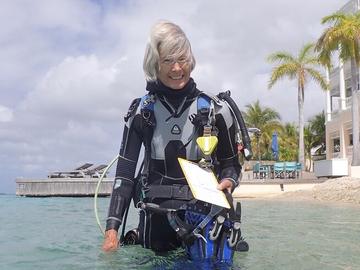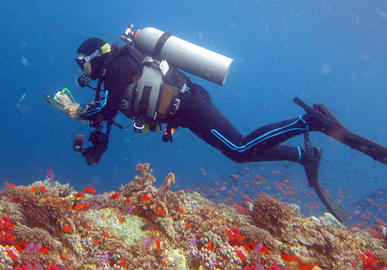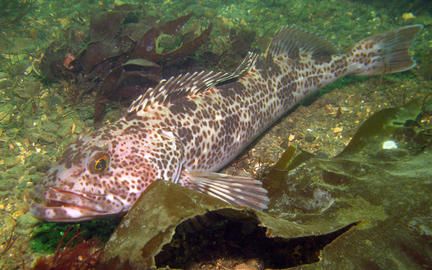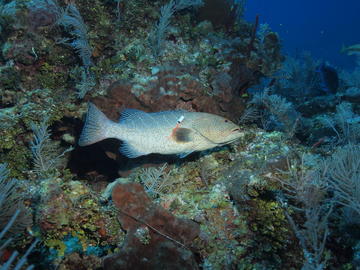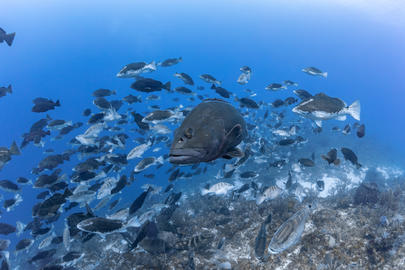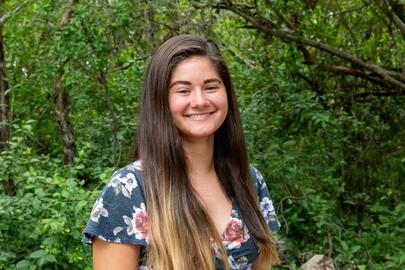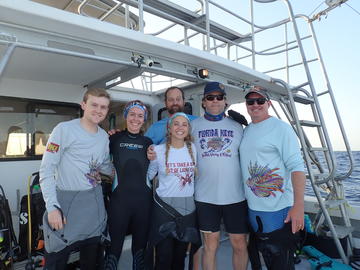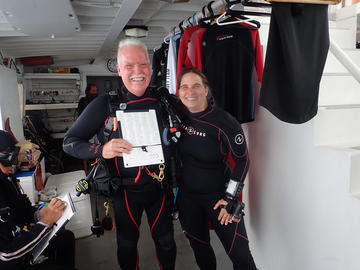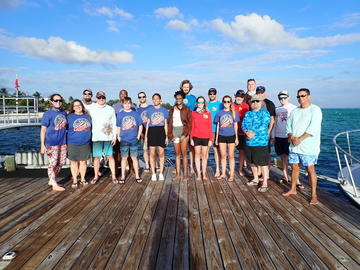We are heartbroken to share the news that beloved REEF member, Cassandra Neal, passed away unexpectedly last month. Her kindness, laughter, and passion for the oceans will be greatly missed by many.
Since its launch in 1993, the REEF Volunteer Fish Survey Project (VFSP) has generated one of the largest marine life databases in the world. The database currently includes almost 278,000 surveys, from more than 15,000 sites throughout the world’s oceans. More than 16,000 volunteer divers and snorkelers have participated in this citizen science project.
Long-term data are essential for understanding how ocean species, communities, and habitats change over time. Citizen science programs like the REEF Volunteer Fish Survey Project make it possible for us to collect data that spans a large area and/or period of time. Meanwhile, other types of scientifically-collected data tend to be project-specific and are often tied to short funding periods, and these challenges are particularly true for environments that are difficult to sample, such as nearshore ocean habitats.
If you have been following along the conservation success of the REEF Grouper Moon Project, you know that our team has made great strides for the preservation of Nassau Grouper populations in the Cayman Islands over the last 20 years. Did you know that this project goes beyond conducting research on the iconic Nassau Grouper? The spawning site on Little Cayman, where much of our Grouper Moon work happens, is an important location for more than 20 other species of fish.
We don't usually think of fish as noisy animals, however, many species of fish are able to produce a variety of sounds, including clicks, purrs, grunts, pops, and even deeper noises like booms. A recent paper published in the The Journal of the Acoustical Society of America looked at the sounds made by different grouper species, as part of the Grouper Moon Project.
We are excited to welcome Sierra Barkdoll to the REEF staff team as Citizen Science Coordinator. Sierra joined the staff in June 2022 after serving as a REEF Marine Conservation Intern (MCI) and Lead Intern over the past year and a half. In her new staff role, Sierra will work closely with Janna Nichols, REEF's Citizen Science Program Manager to support the Volunteer Fish Survey Project, REEF's cornerstone citizen science program.
Our Grouper Moon Project team returned to the Cayman Islands around the full moon in February for another month of research on the Nassau Grouper spawning aggregation on the west end of Little Cayman. Because this year was a "split moon" year, we weren't quite sure whether the major spawning activity would happen in January or February.
We are excited to honor Dennis Bensen as 2021 REEF Volunteer of the Year. Dennis joined REEF in 2001, and quickly became an avid REEF surveyor as part of the Volunteer Fish Survey Project (VFSP). Through the years, he has earned Expert level surveyor status in both Hawaii (HAW) and the Tropical Western Atlantic (TWA) survey regions, and he is one of the few surveyors who has conducted REEF surveys in most (7) of REEF’s 10 survey regions worldwide. After living in New York for decades, Dennis moved to the Big Island of Hawaii when he retired in 2015.
This year marks the 20th anniversary of the Grouper Moon Project, and we are excited to report that our team was once again able to get into the field after missing last year due to COVID-19 restrictions. For ten days around the January full moon, our team conducted research to document the Nassau Grouper spawning aggregation on the west end of Little Cayman - the largest and one of the last known aggregations of these endangered reef fish.
We are very excited to introduce the newest member of the REEF Team, Dr. Rachel Walls. Rachel began working with REEF in January 2022, and will continue ongoing research started by previous REEF Research Associate, Dr. Dan Greenberg. This body of work seeks to leverage the extensive REEF Volunteer Fish Survey Project dataset by asking fundamental and applied questions in fisheries science, marine ecology, and conservation biology.

